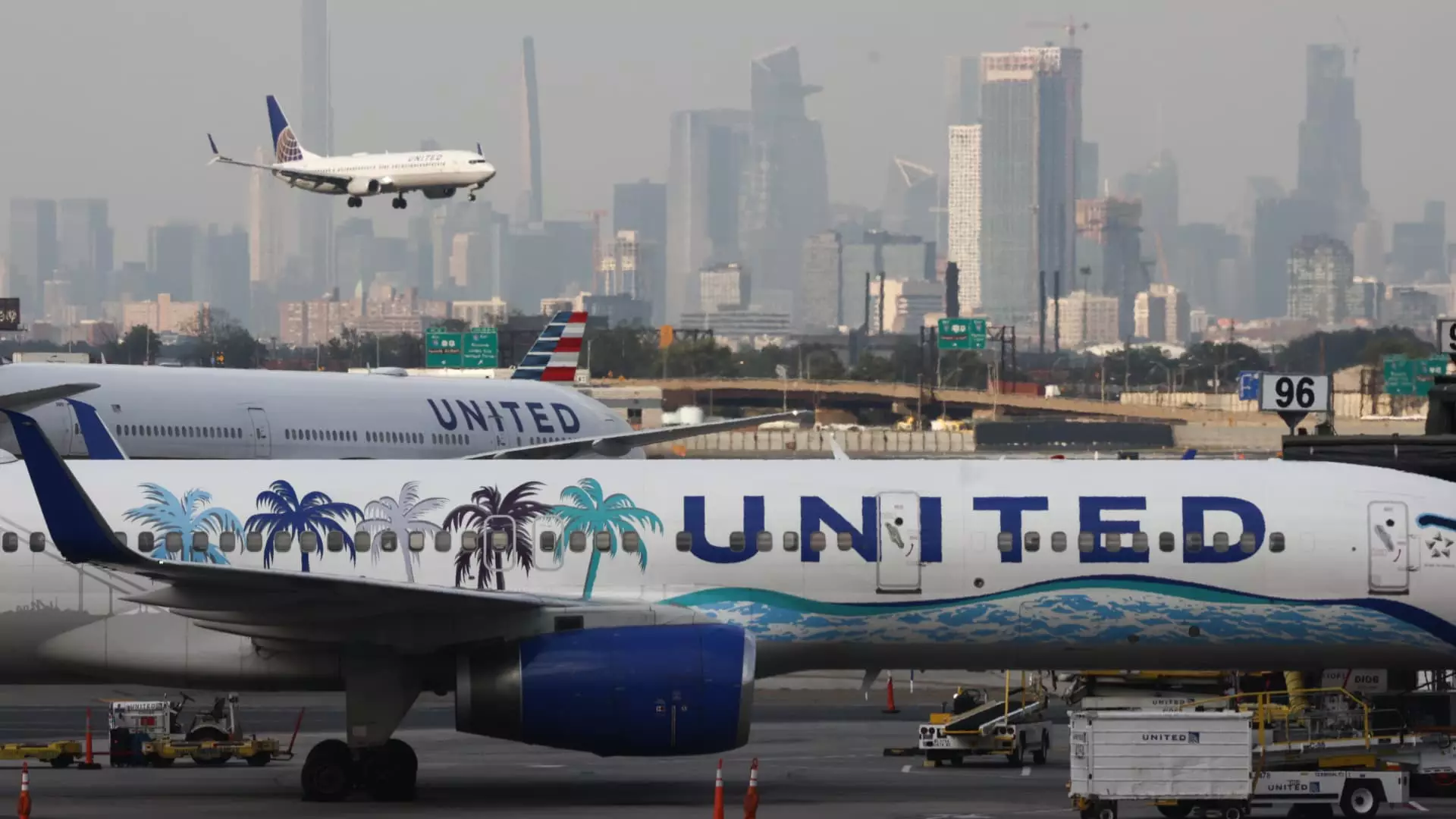A seismic shift in U.S. airline stocks is reverberating through the market, pushing shares down to levels not seen since the latter part of last year. This downturn is particularly striking given that airline stocks had been shining brightly as key beneficiaries of consumer spending. But recent economic indicators suggest a looming anxiety that has investors reassessing their positions in the airline industry. The substantial dip in stock prices—United and Delta down 6% and American down nearly 5%—echoes a collective concern about the fragile state of the economy, accentuated by escalating trade tensions.
Tariff Troubles: The Ripple Effect of Protectionist Policies
The ongoing trade war, fueled by President Donald Trump’s recent tariff impositions on Mexico, Canada, and China, has sent shockwaves through various sectors, including aviation. Retaliatory tariffs have the potential to shift consumer buying patterns, leading to higher prices for everyday goods. As executives from major retail companies like Best Buy and Target have warned, the wrath of these tariffs could ripple through to airline ticket prices, further dampening consumer appetite for travel. When consumers are faced with inflated costs, discretionary spending becomes the first casualty, and travel is often a luxury many can forgo.
January saw a disconcerting decline in U.S. consumer spending for the first time in nearly two years, a troubling indicator that raises red flags for industries reliant on such expenditures, particularly airlines. The findings presented by the U.S. Commerce Department are alarming; a bigger-than-expected plunge in retail sales should serve as a wake-up call for those within the aviation sector. Analysts at Deutsche Bank have identified a concerning “soft patch” in the economy, hinting that further declines in consumer confidence could significantly impact air travel demand, particularly for price-sensitive individuals.
Strategic Implications for Airlines
Full-service carriers had been basking in the glow of stable demand, but the current economic climate raises questions about long-term customer behavior. Despite claims from airline executives that corporate and long-haul international travel remain robust, there is an undeniable risk that these areas could also succumb to economic pressures if the situation worsens. The contradictory narrative from industry leaders suggests a potential disconnect between optimistic forecasts and grounded reality, driven largely by economic considerations that might defy their assurances.
As we move closer to the critical spring travel season, the potential for decreased demand hangs ominously over the airline industry. Consumers’ discretionary income is not merely a metric to observe; it is the lifeblood of airline profitability. Operators must navigate this turbulent economic landscape carefully to maintain stability. While corporate travel might remain resilient, it is crucial for airlines to adapt and innovate to keep the leisure travel segment buoyant. Without proactive measures to engage travelers and mitigate the effects of economic challenges, airlines risk underperformance during a pivotal season.
In this climate rife with uncertainty, the stakes for airline stocks have never been higher, and whether the industry can weather this storm remains to be seen.

